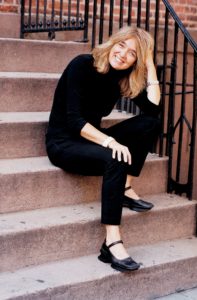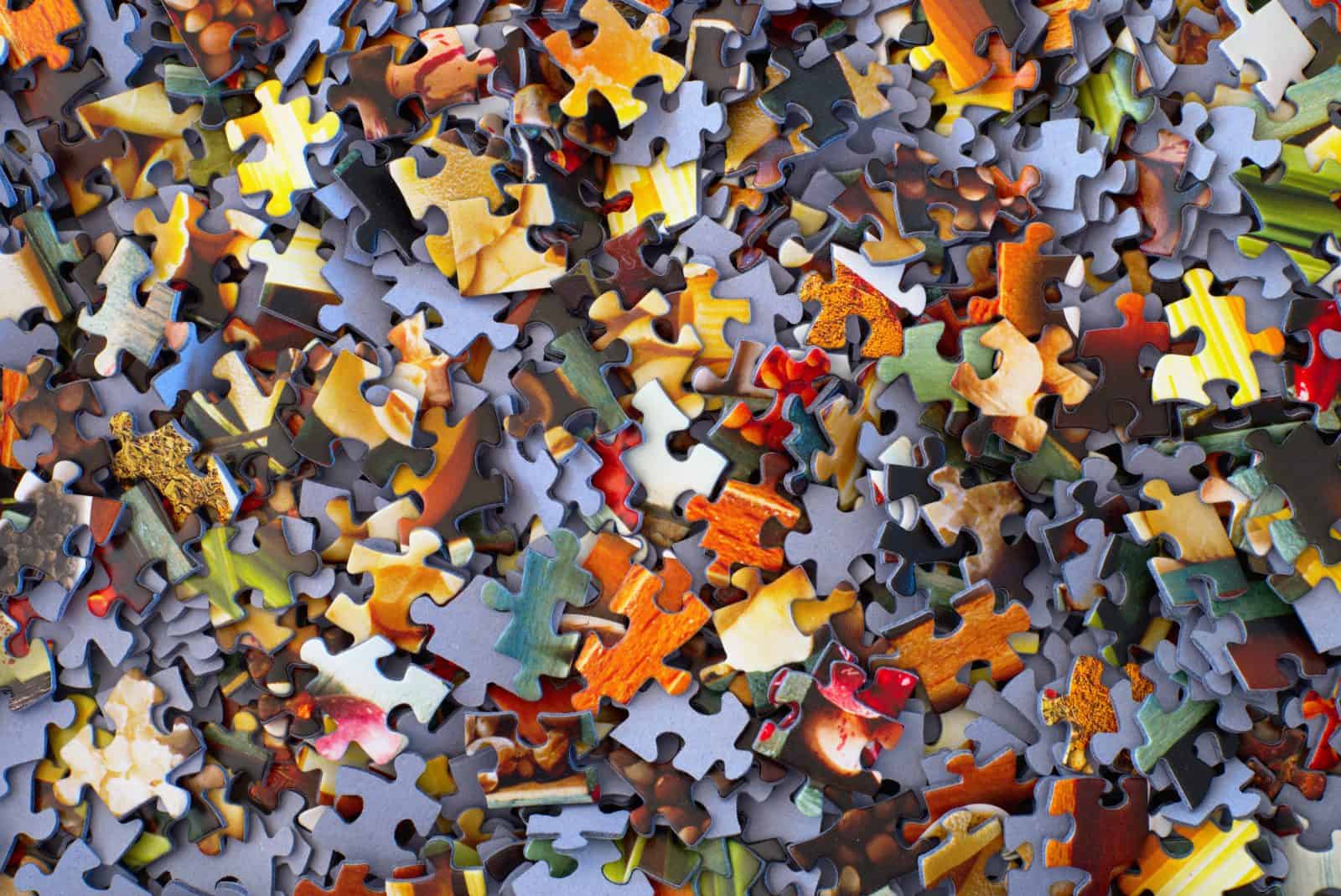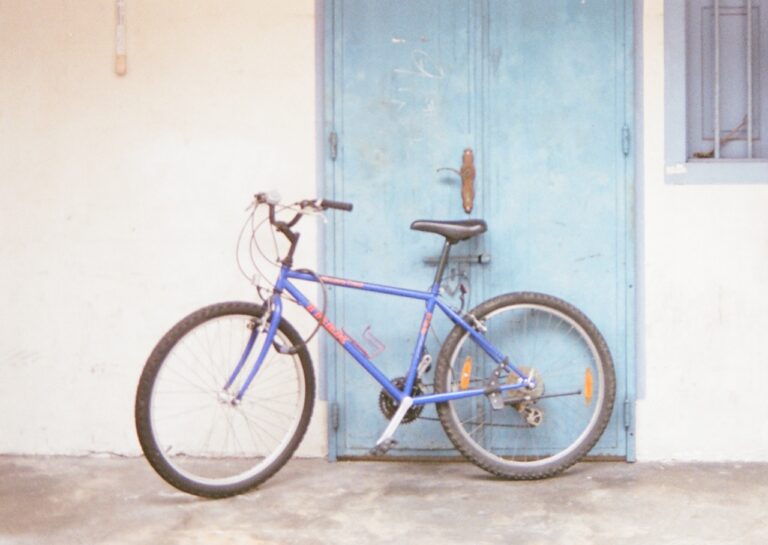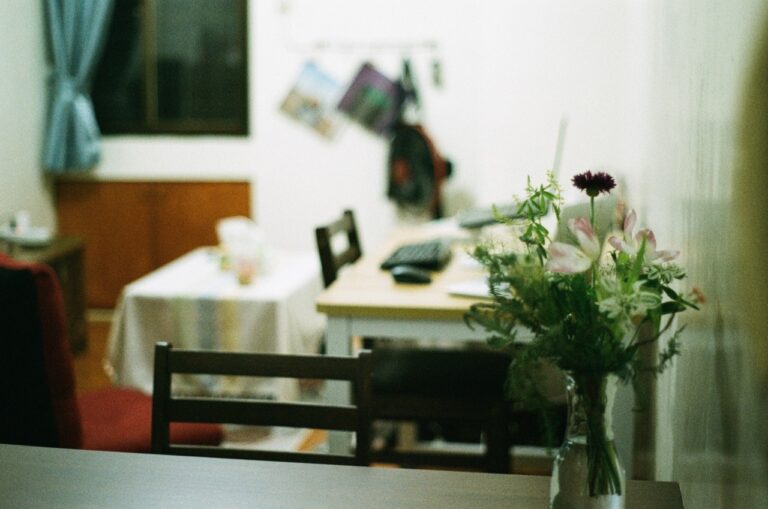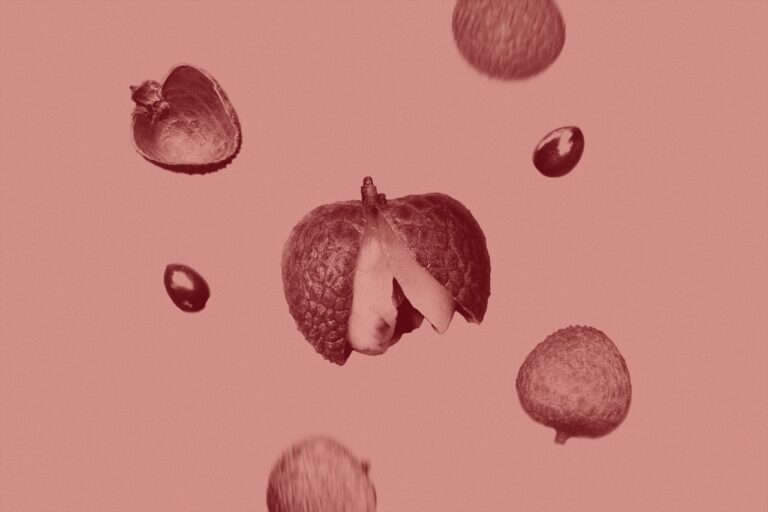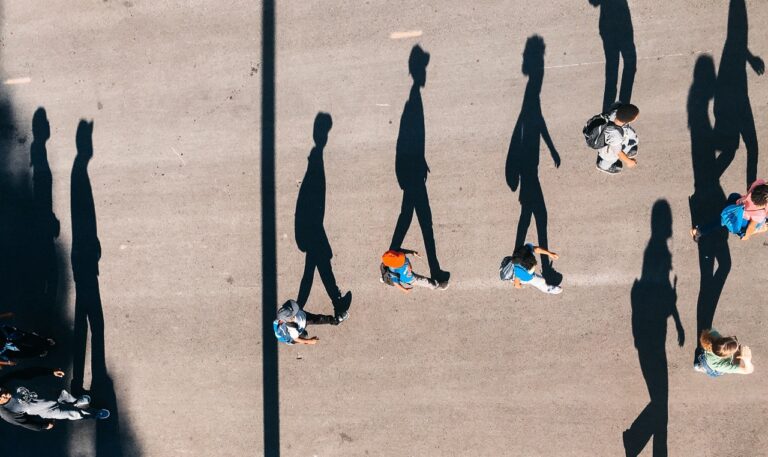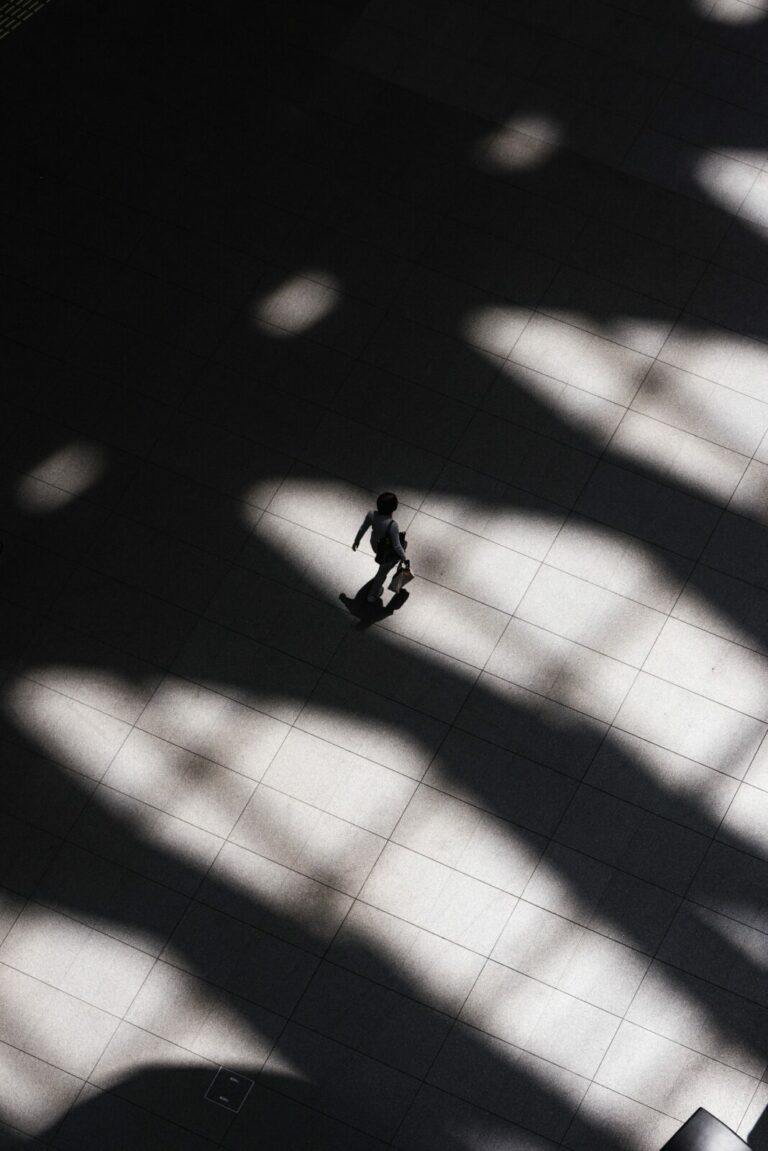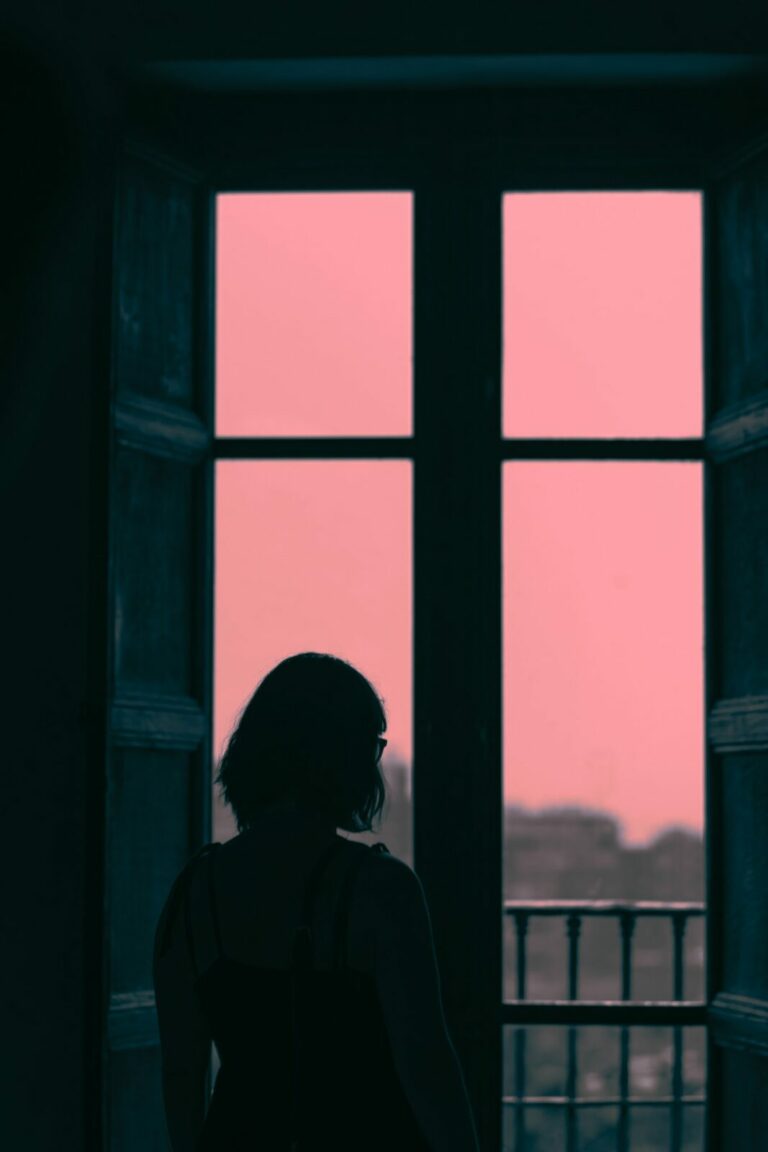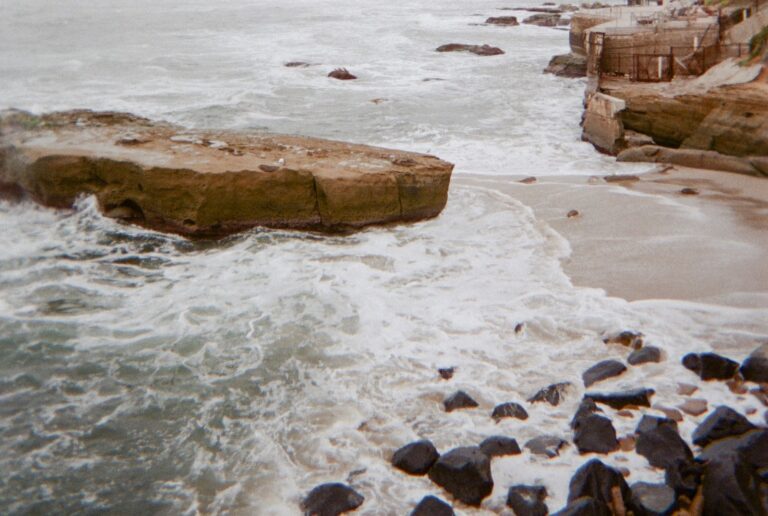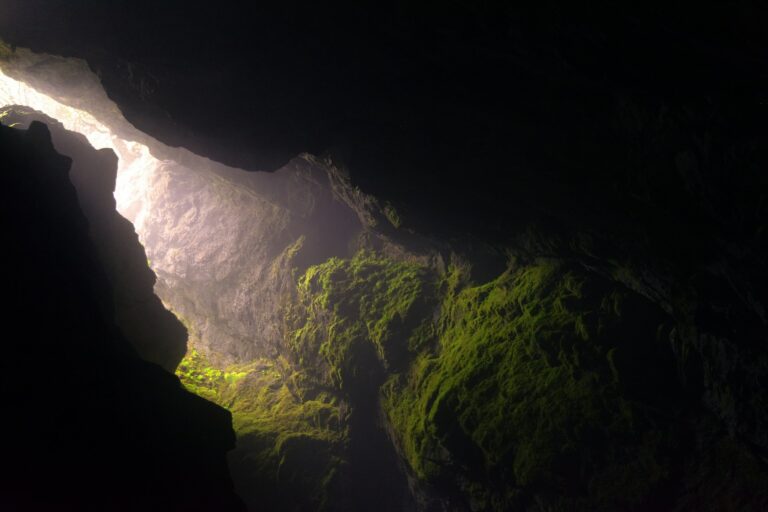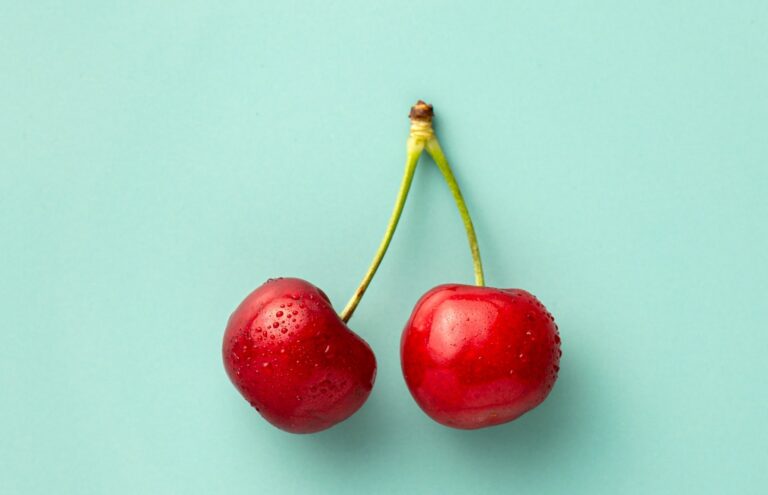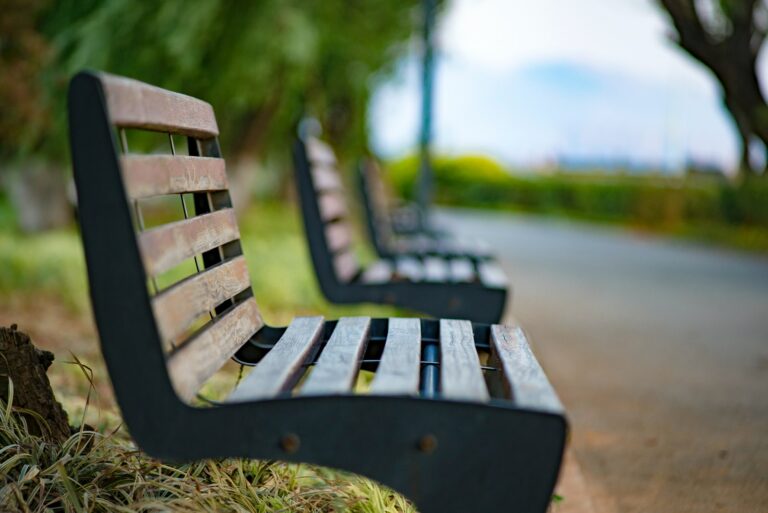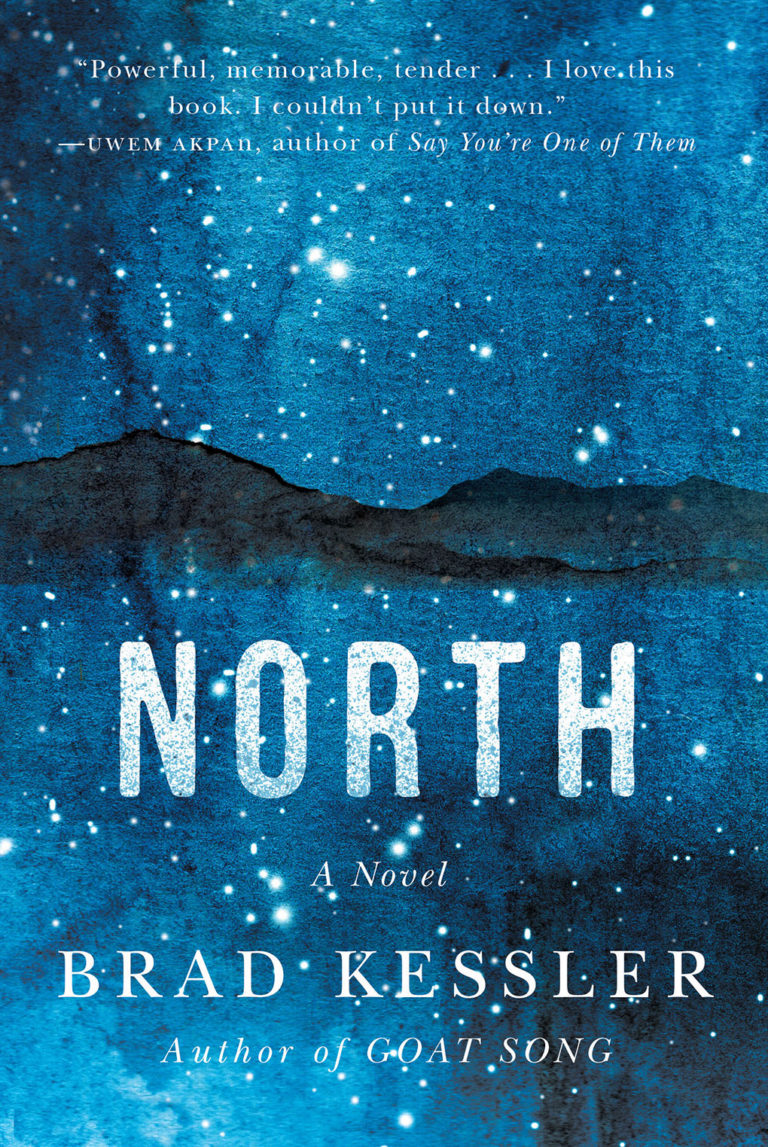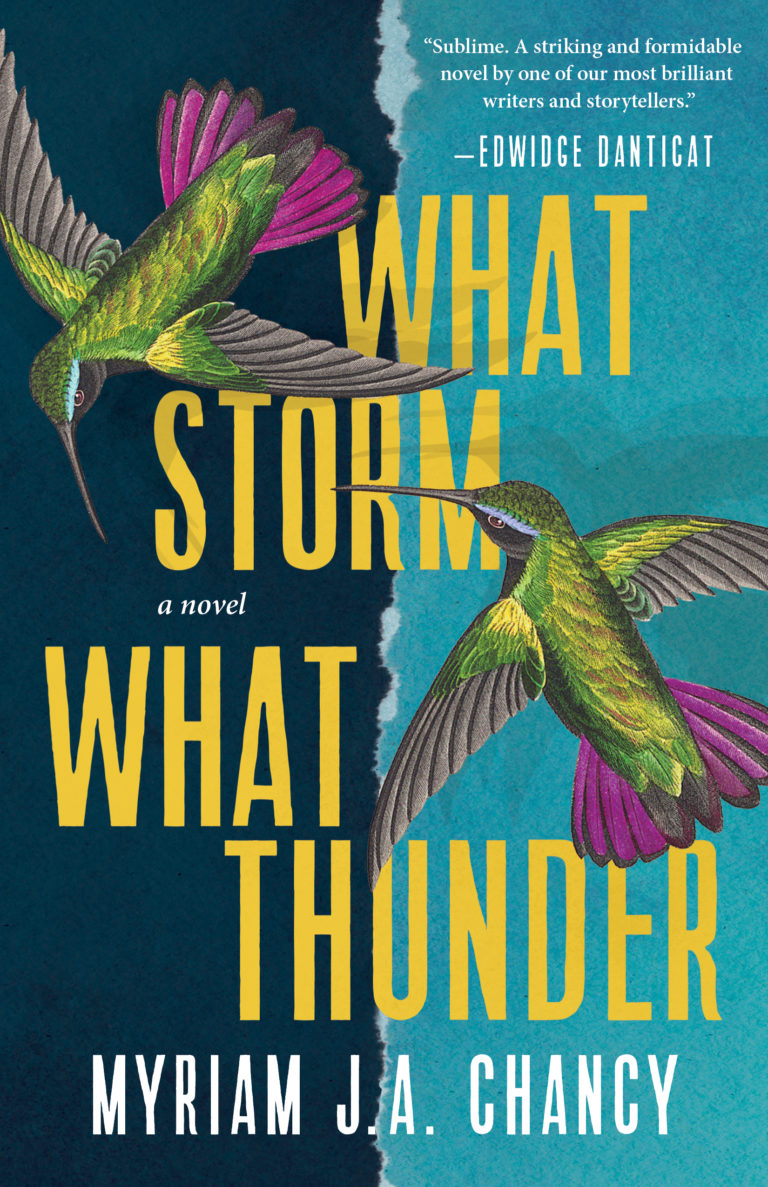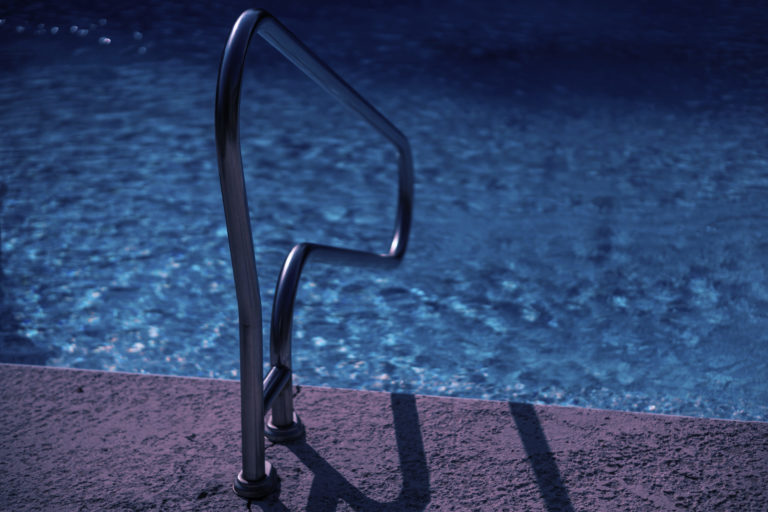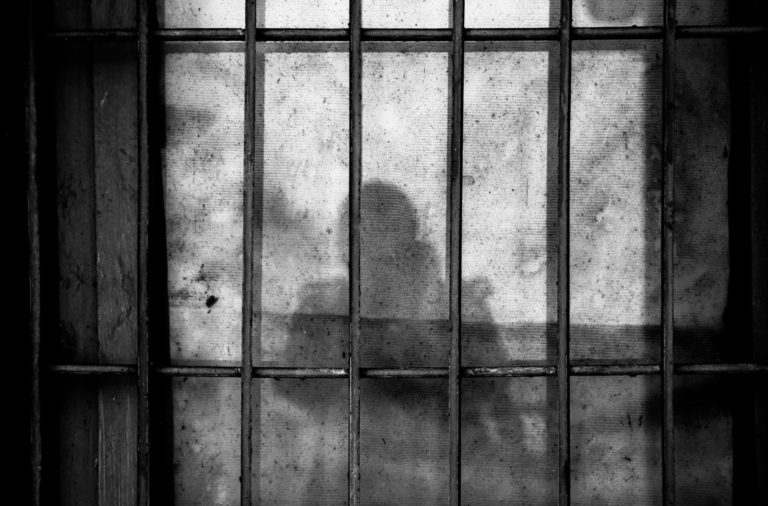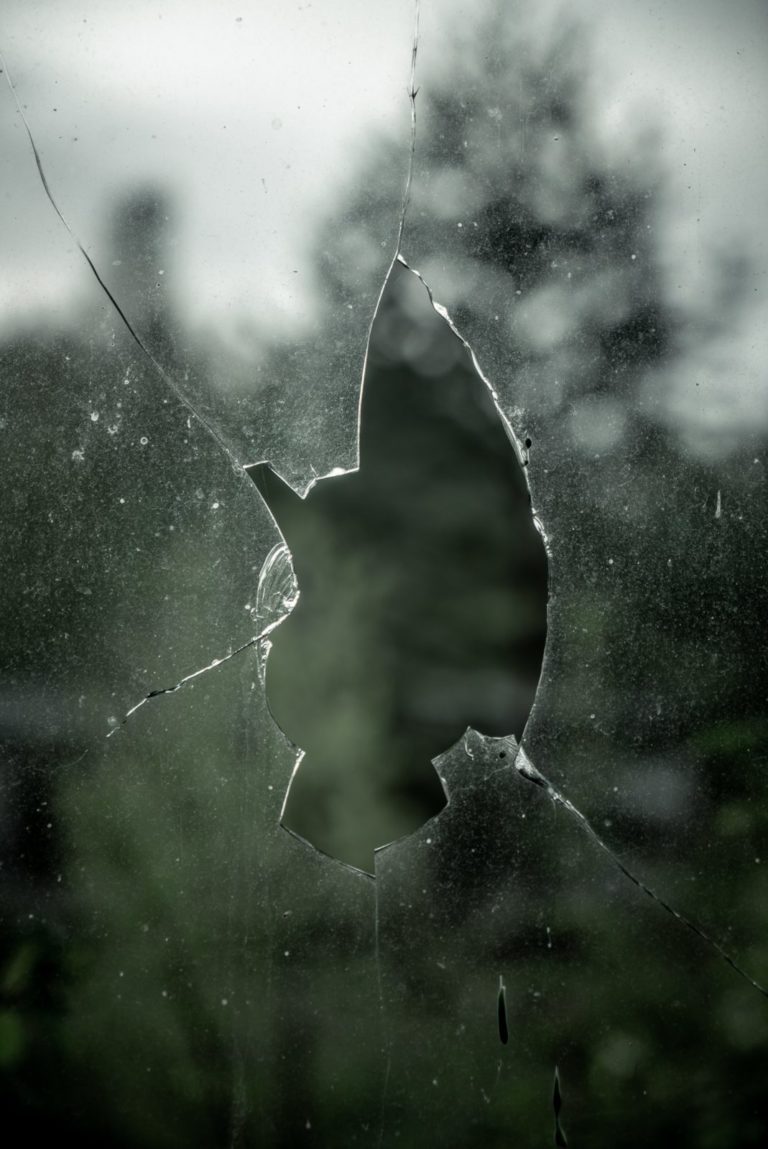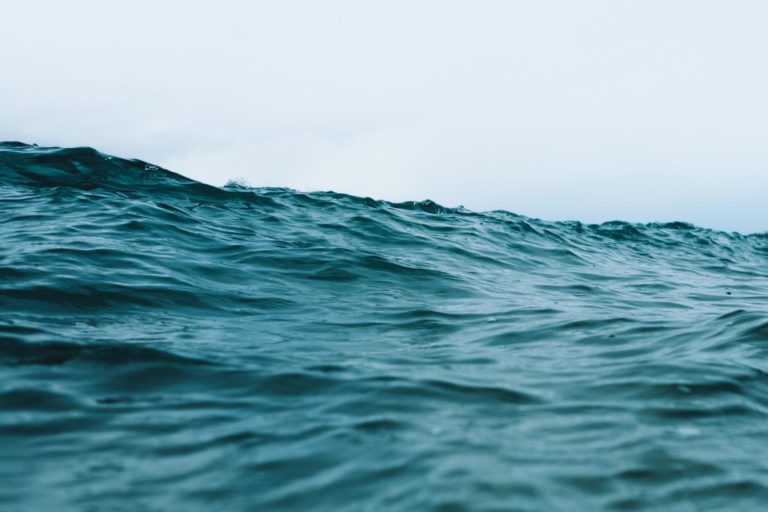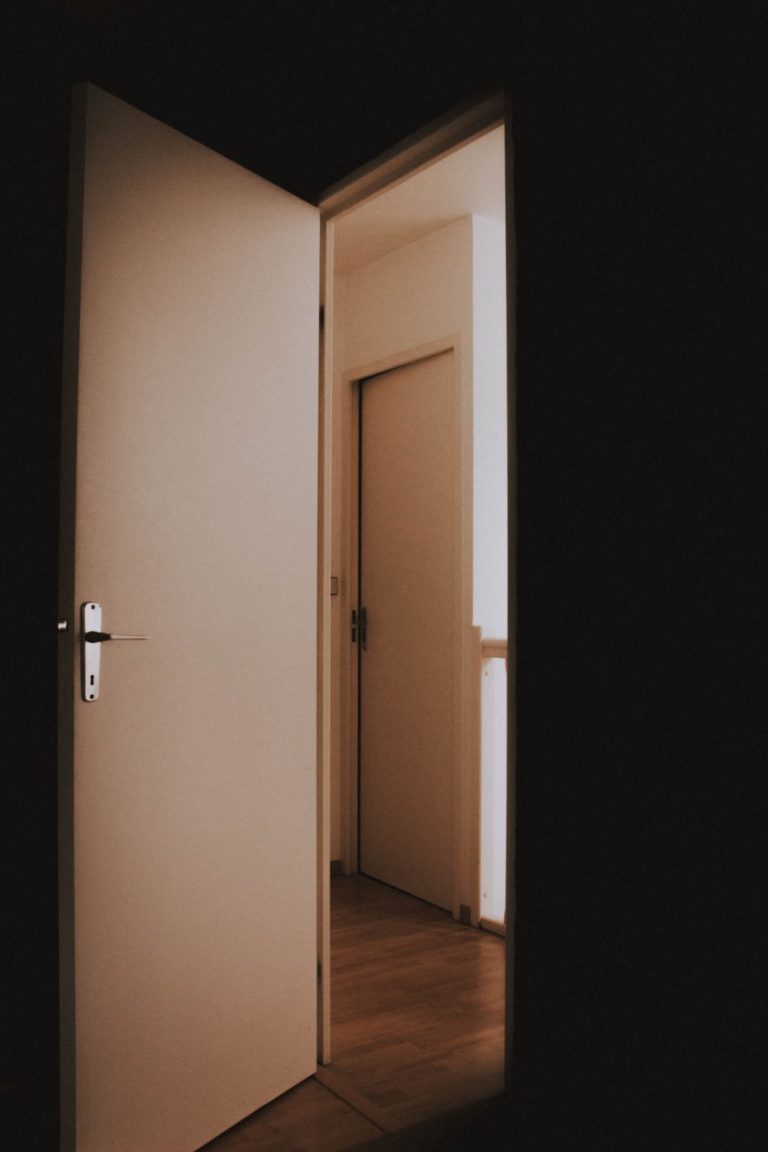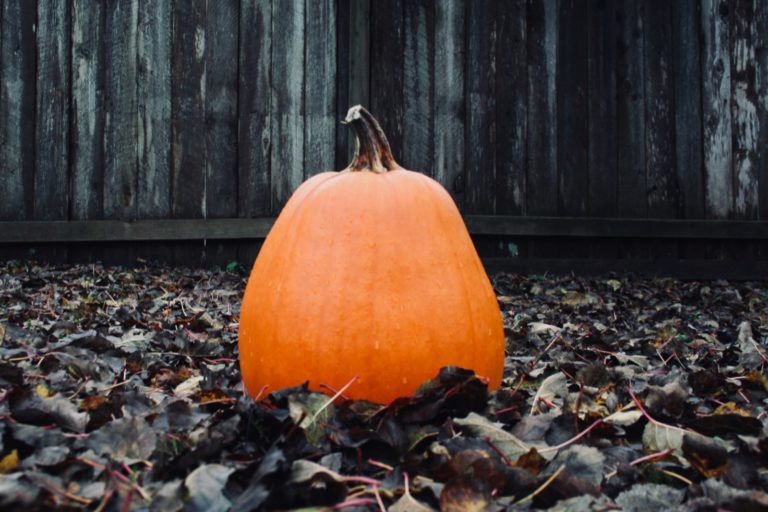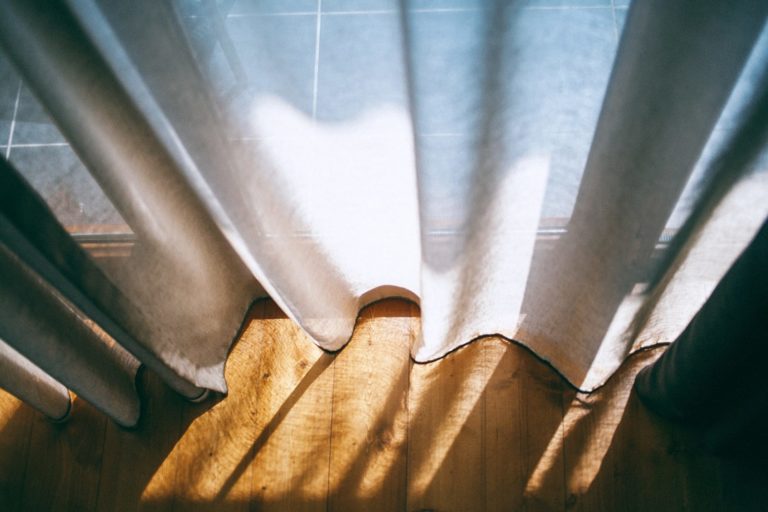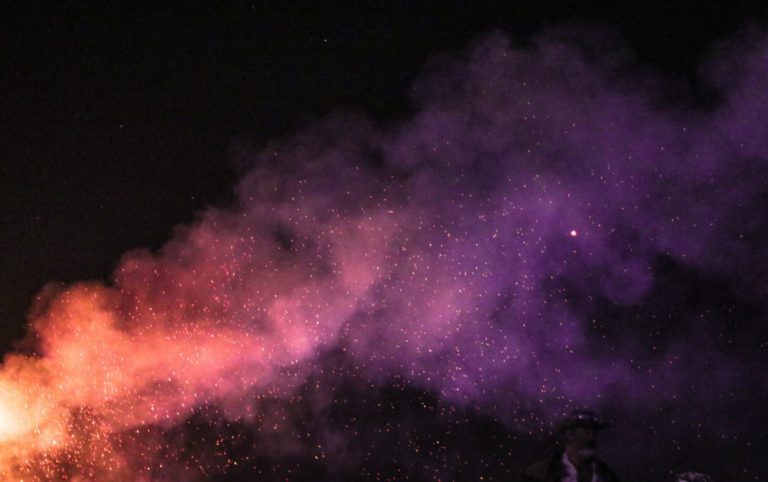Todd invited the Korns—all of them—for a visit at the beach. Not just dinner, but to stay overnight. Laura was finishing the border of a 2000 piece jigsaw puzzle of a Diego Rivera painting when he told her, casually. “The Korns are coming by tonight for supper.” He said it as if there weren’t five of them. As if she liked them. “I told them they might as well stay over instead of driving all the way back.”
“I’m only doing hamburgers,” Laura said without looking up. She rooted through the box, searching for a corner piece. “Hot dogs for the kids.”
Todd kissed the top of her head. “I’ll pick up what? Potato salad? That way you won’t have to drive to Lee’s.”
The beach house was a good thirty minutes from Lee’s, the nearest grocery store. Some days the drive to Lee’s was just what Laura needed. Other days she needed to sit here and look at the ocean and do a jigsaw puzzle.
“Maybe some chips and salsa too. Tomatoes, if they’re good?” she said.
“Text me a list,” Todd said.
He might have hesitated in the doorway, but Laura didn’t notice. She began to pick up each piece and drop it into the cover of the box. It could take her hours to find what she was looking for.
* * *
For years, every July, they had gone somewhere in Central or South America, renting little apartments or houses with bad plumbing and spotty electricity. Laura taught Spanish at the university, and she got grants to live in Peru or Guatemala or Honduras. She and Todd packed up the kids—first Lucas and then Miranda and finally Josephine—and bug spray and sun screen and Pedialite and spent that one glorious month without television or ringing telephones, just their little family in its own world. How many pictures did they have of the kids naked on a beach, or patting tortillas, or sleeping together under a mosquito net? How many finger puppets knit into animal shapes—llamas, turtles, pigs—were strewn at the bottoms of drawers? How many nights had she and Todd sat under a sky heavy with stars, their children suntanned and happy and breathing even breaths, and told each other how lucky they were? What a good good life we have, Laura had said that last summer before that good luck changed. Months later, as she listened to a doctor say the words pneumonia and then secondary infection, she would wonder if she had brought attention to their happiness, if she had called in the forces that changed it all. But that night, on a beach that seemed to stretch endlessly along the Pacific Ocean, she had felt only something like joy.
* * *
The babysitter and Josephine came into the house, plastic pails in their sandy hands.
“Periwinkles!” Josephine announced.
Laura hugged her close, smelled the salt and little girl sweat on her. “Guess what? Cooper is coming for dinner tonight,” she told her.
The Korns were new to the neighborhood, and their lives overlapped Laura’s in various ways. Rosalind Korn took the same yoga class as Laura. Her husband Stanley’s company did some work with Todd. And the Korn’s oldest child, Cooper, went to kindergarten with Josephine. They were younger than Laura and Todd by a good ten years. Laura was always struck by how much parenting had changed in the twelve years since she’d had Lucas. Rosalind worried about chemicals in products and high fructose corn syrup and organic everything. Of course Laura wanted to tell her that a mother can worry about those things, and use the right car seats and keep vaccinations up to date and put on helmets even for simple spins on their tricycles around the kitchen table, and something else will sneak up on you, something you couldn’t plan for or prevent. But she didn’t say any of that. She just let Rosalind talk in her smug, foolish way.
“Yay! Cooper!” Josephine shrieked. “Tucker too?”
Laura tried not to roll her eyes. The Korn children all had names like they were medieval apprentices. “Tucker too, and Archer.” She smiled at the babysitter, a sweet fourteen-year-old whose parents rented a house down the beach. “Maybe get her a snack, sweetie?” She called the girl sweetie because she could never remember her name. It was a gem of some kind. Ruby? Pearl? Laura sighed, and went back to her puzzle pieces.
“Um, she wants to show you something?” the girl said.
Laura tried to look curious. “What do you have, Jo?”
Josephine turned shy. She shrugged, and clutched her yellow pail.
“Um,” the babysitter said, “that thing with the snails? You know?”
Laura waited impatiently. From above, she heard Lucas clomp out of bed. His feet seemed to grow larger every day. He tripped over everything, and walked hard across the floor and down the stairs.
“What thing?” Laura finally said.
“Show her, Jo,” the girl prodded.
Josephine took a periwinkle from her pail and held it in the palm of her hand. Quietly, she began to hum.
Laura watched as the tiny animal poked out from its shell.
“I called it out,” Josephine said, smiling.
Laura glanced at the babysitter.
“It’s the vibration,” the girl said. “Sometimes my mom and I spend all afternoon on the rocks and we collect periwinkles and we hum to them and they all come out, like an orchestra or something.”
Josephine plopped one in Laura’s hand.
“You do it, Mommy,” she said.
Without warning, tears filled Laura’s eye at the simplicity of it. The wonder. Laura pressed her lips together and hummed.
* * *
The Korns arrived in a noisy heap. They smelled of Cheddar Bunnies and something sweet. Rosalind Korn hoisted the baby from its car seat and slung a diaper bag over her shoulder as Cooper and Tucker ran into Josephine’s waiting arms. Rosalind had driven their hybrid SUV down with the kids; Stanley was coming with Todd.
“Driving all this way with three kids,” Rosalind said, grinning.
Proud, Laura thought. As if she were the first person to drive forty miles with kids in the back seat.
“Two potty stops and one spilled juice box. Not bad, I’d say,” Rosalind continued as she unloaded the car.
Lucas hovered behind Laura, and Rosalind began handing him bags. “We brought beer and Annie’s mac and cheese. The organic one? In case you didn’t have that on hand.” This last thing Rosalind said as if Laura only served her kids junk food.
Laura managed to mumble great before Rosalind was off in the direction of Tucker, who had wandered toward the rocky beach.
“Well,” Laura said to Lucas, “bring those inside. Put them in the organic section.”
Lucas stifled a smile and plodded across the crushed seashell driveway into the house. His shoulders drooped sadly as he walked, and Laura wanted to run to him and hug him hard.
“I need another set of eyes,” Rosalind said, herding all of the kids toward the house. “And arms.”
Laura nodded. She thought of that beach in Guatemala, of Josephine running crookedly in a saggy diaper and Lucas and Miranda jumping in and out of waves, naked and golden. The memory of the joy and exhaustion that came with her vigilance made her so weary that she sunk down to the grass.
Rosalind paused, frowning.
“They can catch frogs here,” Laura managed. She swept her arms. “There are buckets.”
“Frogs! How fun, Coop!” Rosalind said, and in an instant she had them armed with pails, chasing frogs across the grass.
Thankfully, Todd and Stanley drove up, and Laura got herself to her feet and inside to get everyone a drink. Lucas’ music thumped overhead. She considered making him come down and be sociable, but why force him to endure the Korns? Instead, she piled lemonade and paper cups, wine and glasses, chips and salsa onto a tray and brought it all to the porch, where the men stood gazing at Rosalind Korn as she spun in circles with Tucker. The sun cast her in a reddish light, and with her pale blond hair and loose floral dress she looked like someone in an Herbal Essences ad.
“We were just talking about the whale,” Stanley Korn said. He was short, with a boyish face and a bowl haircut. He always clenched an unlit pipe between his teeth, to make him look older, Laura guessed.
“Whale?” Laura asked.
“You haven’t heard?” Rosalind chimed in. “A forty-foot humpback washed up on Briggs Beach.”
“We don’t have TV here,” Laura said, shrugging.
Rosalind laughed. “We don’t have television either. But it’s been in the paper.”
“We’re kind of cocooned down here,” Todd explained. “The nearest store is—”
“Lee’s, right?” Rosalind said. “Great local products there.”
“Is it alive?” Laura asked.
Stanley grimaced. “No, no. It’s dead.”
“Poor thing,” Laura said.
“Maybe we could take the kids to see it?” Todd suggested. “In the morning.”
“Oh dear,” Rosalind said, frowning, “It might upset them.”
Laura swallowed hard. “My kids would be okay with it,” she said.
Stanley waited for Rosalind to decide. “What do you think, Poo?” he said.
Laura had forgotten. On top of everything else, the Korns had pet names for each other.
Rosalind put her hands to her chest. “I want to keep them innocent forever. It’s foolish, but I don’t want them to know that whales die.”
Todd put a hand on Laura’s shoulder, and the weight of it seemed almost too much to bear. She dropped into the rocking chair in the corner, the one that squeaked.
“How about I light the grill?” Todd said. “Hamburgers sound good?”
“Great,” Stanley said. “I’ll give you a hand.”
“Not for the kids though, right?” Rosalind said. She was coming onto the porch, the baby in some kind of primitive looking sling with just his dark curls and tiny toes poking out either end. “E coli, Da,” she said to Stanley, who nodded.
Lucas appeared, a dark image behind the screen door. “The toilet’s overflowing,” he said flatly.
Almost relieved, Laura jumped up and hurried inside.
“I could make that Annie’s mac and cheese for the kids,” Laura heard Rosalind saying as she climbed the stairs.
* * *
Sludgy water puddled on the bathroom floor and in the hall just outside it. It was hot and airless up there anyway, and now it smelled like a sewer. Through the open windows, Laura could see the children climbing rocks. She could see Stanley and Todd at the grill. She could see Cuttyhunk in the distance, a hazy hump of an island.
Lucas held a plunger out to her, and some happily colored beach towels.
“Don’t use a lot of toilet paper, okay?” she said gently. “The plumbing’s sluggish.”
Lucas nodded. He began to wipe up the mess. Laura watched her son clean up. The smell of lit charcoal mingled in the air now. Laura inhaled, big deep breaths.
“You okay?” Lucas said, looking up at her, worried.
She thought of all the things she could say to him, how she’d never be okay again, how each breath she took cut into her, how she was afraid to love them all.
But of course she said none of this. She said, “Well, as okay as a person about to stick a plunger into a toilet can be.”
Lucas laughed, relieved.
* * *
By the time Laura returned, the toilet plunged, the mess cleaned up, and a pale blue plastic bowl of potato salad in her hand, everyone was already sitting at the big picnic table on the lawn. Rosalind bustled around them all, pouring lemonade and scooping mac and cheese. Todd followed her movements as if he were watching a fairy godmother. How easy it would be for Laura to slip back inside, or to take off down the beach and disappear. But Lucas’ sour breath on her back held her in place.
“The Korns,” he said, mimicking her own disdain.
“Oh, they’re all right,” Laura said.
“She’s bossy,” Lucas said.
Laura smiled. “Yes.”
“Is she pretty?” he asked her. Lately, he had been asking her questions like that, as if her opinion mattered.
Rosalind Korn tucked a stray strand of hair behind her ear and stood, her hands on her hips, grinning. The angle of her head implied that she was listening closely to whatever Todd was saying. In a strange way, Laura was grateful for that small gesture.
“Yes,” she said. “She’s very pretty.”
* * *
The adults drank too much wine. Rosalind wore a bleary look, and talked louder than usual. The Korn children were all tucked into beds upstairs, but Josephine was spinning in ever more frantic circles on the porch, dropping to the floor and then getting dizzily to her feet and spinning some more.
Rosalind pointed her wineglass at the little girl, sloshing wine as she did.
“You should be in bed,” Rosalind told her. “It’s almost ten o’clock.”
Josephine staggered crookedly toward Laura.
“It’s summer,” Laura said. “They’re on vacation.” She wrapped her arm around her daughter protectively, as if Rosalind Korn might swoop in and put the child to bed right then and there.
“They’re still children,” Rosalind said.
“Poo,” Stanley said, “every family has its own rules.”
Rosalind laughed. “Or lack thereof,” she said. She was one of those people whose vocabulary improved as she drank.
“We have rules,” Laura said. The edge in her voice made Rosalind actually rear back slightly.
“Hey!” Todd said, getting to his feet. “How about we play a round of the Name Game?”
Before Laura could protest, he was already searching for paper and pens and a pair of scissors.
“Explain how to play,” he said to Laura.
“Rosalind just pointed out it was getting late,” Laura said stiffly.
“For Lilliputians,” Rosalind said. “Not for us.”
Josephine nodded solemnly and yawned.
“So what’s this game?” Stanley asked, helping himself to the wine.
Todd came back in with an orange plastic bowl filled with strips of paper. “It’s easy, really. We each write names of famous people on these strips of paper and take turns having our team mate guess them.”
“Like Charades,” Rosalind said.
“Not at all,” Laura said. “You give clues. Like if you were trying to get Stanley to guess George Bush, you could say, the last president. And if he didn’t know, you’d say, he has the same first name as the first president, and his last name is like a small tree. You see?”
“No sounds-like, though,” Todd added. “That’s really the only rule.”
“But let’s not have our spouses as our team mate. That’s boring,” Rosalind said.
“Men against women then,” Laura said. She started to write names down.Pinnochio. Heidi Klum. Strom Thurmond. Then, just to irritate Rosalind, she wroteDorothy Gale.
“No, no,” Rosalind was saying. “Let’s mix it up. I’ll be Todd’s partner and Stanley can be Laura’s. Is that okay, Da?”
Without waiting for an answer, Rosalind moved to the cane chair beside the worn chintz easy chair where Todd sat.
Of course, Rosalind and Todd won easily. Stanley seemed incapable of understanding the game, the importance of giving clues fast, of guessing the answers. Instead, he bit his pipe and pondered the name on the little strip of paper. By the time he began his clue, their time was up.
Rosalind, on the other hand, shouted her answers with gusto and smacked the table proudly when she was right. Frank Gehry. Helen Gurley Brown. Eva Peron. Stella McCartney. Samuel Clemens. Josephine, asleep and draped over Laura’s lap, made Laura hot and sweaty, the weight of her daughter causing her to grow numb.
When it was Laura’s turn again, she wearily unfolded a piece of paper. Stanley waited, biting on that ridiculous pipe.
“Twenty-seven to twelve,” Rosalind announced.
“Maybe we should call it a day,” Laura suggested.
“Oh, no, you don’t,” Rosalind said, pointing a finger. “No giving up allowed.”
“Okay,” Laura said. “He was an architect,” Laura began. “Really famous…”
Rosalind snorted. “I wrote this name down,” she said.
“During the Gilded Age,” Laura continued, trying to ignore Rosalind. “I think he did Rosecliff.”
Stanley stared at her.
“This is the point where you start throwing out guesses,” Laura told him.
He nodded. “I know this one,” he said. But he didn’t guess anyone.
“Okay,” Laura said. “Um…he was murdered. Shot, maybe? Evelyn somebody…or Eleanor…Nesbitt? Her husband?”
“I’m thinking Frank Lloyd Wright?”
“Ragtime!” Laura shouted at Stanley.
Rosalind laughed wickedly. “I knew this was a good one,” she said.
“A really famous architect!” Laura said.
“Well,” Stanley said slowly, “Frank Lloyd Wright is pretty famous.”
“But he wasn’t murdered,” Laura said. “He wasn’t in Ragtime.”
“Time!” Todd called.
* * *
“I hate the Korns,” Laura whispered that night in bed.
“Ssshhh,” Todd whispered back. “These walls are like paper.”
“She is insufferable,” Laura muttered.
“I like her,” Todd said. “She’s smart and funny. She went to Yale, you know. Smart as a whip.”
“The bad similes are driving me mad,” Laura said, rolling away from him.
It was a perfect summer night. A breeze came in through the screens. The waves crashed on the shore. She could smell the nicotiana that bloomed below the window, its fragrant pink blossoms open to the night. Their last time in Central America, nicotiana had bloomed in the small yard behind their cottage. That plant had white flowers, and Laura used to go outside after the kids were asleep and lie alone in the hammock, their scent filling the humid air. Remembering that last summer, Laura felt the familiar cut of grief rip through her.
“She doesn’t know anything,” Laura said, forgetting to lower her voice. “Rosalind Korn is an idiot.”
Todd didn’t answer her.
“The way you flirt with her is shameless,” Laura said quietly.
The bedsprings shifted, but he didn’t say anything.
“The way she flirts with you is shameless,” Laura added.
There. She’d said it, admitted that her dislike of Rosalind sprang from jealousy. The admission made her feel better somehow.
“Well,” she said, “at least that’s out in the open.”
* * *
In the morning, Laura made a point of getting up early and making her famous French toast so that when Rosalind appeared, mascara smudges beneath her eyes and her round face slightly puffy, all of the children were already sticky with maple syrup and happily working on seconds.
“They’re going to bury the whale today,” Laura said. “And I’m taking my kids to see it.”
Rosalind sighed, as if to say Whatever is wrong with you, Laura? She looked over at Todd, but he was reading (or pretending to read? Laura wasn’t sure) an oldNewsweek the last renters had left behind.
“It’s ten million thousand feet long,” Josephine announced. “And it’s dead!”
Cooper looked up at his mother, worried. “Is it in heaven?” he asked her.
“This is my point exactly,” Rosalind said to Laura. “Are they ready for these big unanswerable questions?”
Laura leveled a steady gaze at Rosalind. “Do you want some French toast?”
Rosalind blinked her big wide eyes.
“Okay, then,” Laura said, putting down the spatula. “Let’s load up.”
“Da?” Rosalind said, but Stanley was already slipping on his bright orange Crocs. All of the Korns wore them, silly plastic shoes in cartoon colors. Cooper followed his father’s lead, grabbing his own lime green ones. Rosalind sighed and shook her head, a slow I told you so shake.
* * *
They had to take two cars to Briggs Beach, where the dead humpback whale lay decomposing in the hot sun. Somehow, Laura ended up driving Stanley, Lucas, Cooper, and Josephine in her wagon, and Rosalind took everyone else in the hybrid SUV, including Todd. Why the constant rearranging of spouses, Laura thought as she navigated the curving roads towards Little Compton. Why couldn’t she have her husband and her kids beside her, instead of this man, this stranger, really, in ridiculous orange shoes, clenching his pipe and looking like he was doing something illegal.
In the back seat, Lucas hummed sang a song she didn’t recognize. Lately, he’d taken a shine to country music. He had been trying to teach himself the guitar, and even now his hands plucked at the air lightly, as if he was seeking out the right chords.
“I got my toes in the water,” Lucas sang softly, “My mmm in the sand…”
Josephine rattled on about the whale. It weighed ten million tons. It got lost. It was dead. All the while, Cooper just stared at her with the same wide eyes his mother had.
“They said it washed up facing the sea,” Stanley said.
It was the first time he’d spoken since they got in the car.
“Like the people who jump off the Golden Gate Bridge,” Laura said. “They jump toward the ocean.”
“No,” Stanley said. “More jump on the bay side. But I think it’s a matter of that side being more accessible.”
“Hmmm,” Laura said. The Korns knew everything about everything. Except who Stanford White was, she thought, smiling.
“People jump? From the Golden Gate Bridge?” Cooper said, those wide eyes now growing panicked.
“Sad people, Coop,” Stanley said, turning to face his son. “Very very sad people. People who are so sad, you don’t even know anyone like them.”
“My mama is sad,” Jo said matter of factly. “Because Miranda died.”
There was an eternal pause before Cooper asked almost reverentially, “Who’s Miranda?”
“My sister,” Jo said. “She died.” Then she added, “Like the whale!”
As if it was all too much—the whale, the jumpers, a dead sister, the sadness of the world—Cooper burst into tears.
Flustered, Stanley reached toward him, but the seat belt held him locked in place, his hands futilely groping at the empty space.
* * *
Briggs Beach was a private beach, which meant they had to park down the road a mile away and walk. Rosalind already had the baby in its sling, and she was leaning against her car, one hand shielding her eyes from the sun, the other clutching Archer’s hand. Todd stood in front of her, swaying slightly almost like he was dancing with her. At the sound of Cooper’s cries, Rosalind swung her head away from Todd toward the group approaching them.
“Da?” she said. “What happened?”
“What a disaster,” Stanley said. “This whole whale thing is a terrible idea.”
A small, self-righteous smile crept across Rosalind’s lips. “Well, I know that,” she said. “I said that yesterday.”
When Cooper reached his mother, he threw his arms around her knees and buried his face in the folds of her dress.
“People jump off the Golden Gate Bridge,” he said, his voice muffled. “They are so sad, they jump off it and die.”
“Who told him something like that?” Rosalind said. “Laura?”
“I didn’t,” Laura said. She turned her back on all of them and began walking along the hot road toward the beach. She could see the ocean in the distance, and the old rock walls that lined the edges of the sand.
The smell of rotting fish and seaweed got stronger as Laura got closer to the hulk of decomposing whale. Lucas had hurried to catch up with her, and the two of them, flip flops in hand, moved slowly forward. The others lagged behind, zigzagging and stopping to pick up one or the other of the hot, cranky children. Laura refused to wait for them. Walking across the sand was arduous, and she felt as if she wasn’t making any progress at all. But she was, despite her feeling of moving in place. She could make out the faces of the people in the crowd now, and the enormous form of the whale.
Beside her, Lucas was singing a country song under his breath, something mournful yet catchy. They had reached the low stretch of sand where the whale lay, exposed to the elements and to all of them. Lucas covered his nose and mouth with his hand. It did stink, of death and rot. Flies buzzed around the whale, and small crabs scurried in and out of its open body.
The others were approaching, Todd leading them in an old camp song.
“There was a crazy moose,” he sang, and they repeated after him, “There was a crazy moose.”
“He used to drink a lot of juice,” Todd sang in a jazzy rendition. He threw his head back. “There was a craaaazy moose!”
Laura grew lightheaded. The sun. The smell. The long hot walk. She watched her husband showing off for Rosalind Korn, who gazed up at him with her wide eyes and too big smile.
“Sing hey, hey, hey,” Todd sang, and the ragtag little group sang, “Hey, hey, hey!”
“They’re going to have to bury it,” the old man standing next to Laura said. “Can’t move it. Got to bury it.”
Laura nodded. She wondered if she was going to faint. Awkwardly, she climbed up the small slope above the whale, and stumbled to a large rock that rose from the sand. With her back against the rock, she could see everything clearly. The dead whale and her son comforting himself with songs about heartache. Her husband and Rosalind Korn. And her own grief, as palpable as the rest of it, hanging above this beach.
When her hands reached backward to steady herself on the rock, they snagged on sharp, hard bumps. Laura turned and saw that the rock was covered with those tiny snails, hundreds of them in their small, perfect shells. She leaned toward them, bringing her lips as close as she could without touching them. Then she pressed her lips together and began to hum. She watched as slowly, one by one, the snails’ tiny heads came out of their shells and lifted, as if they heard her.
